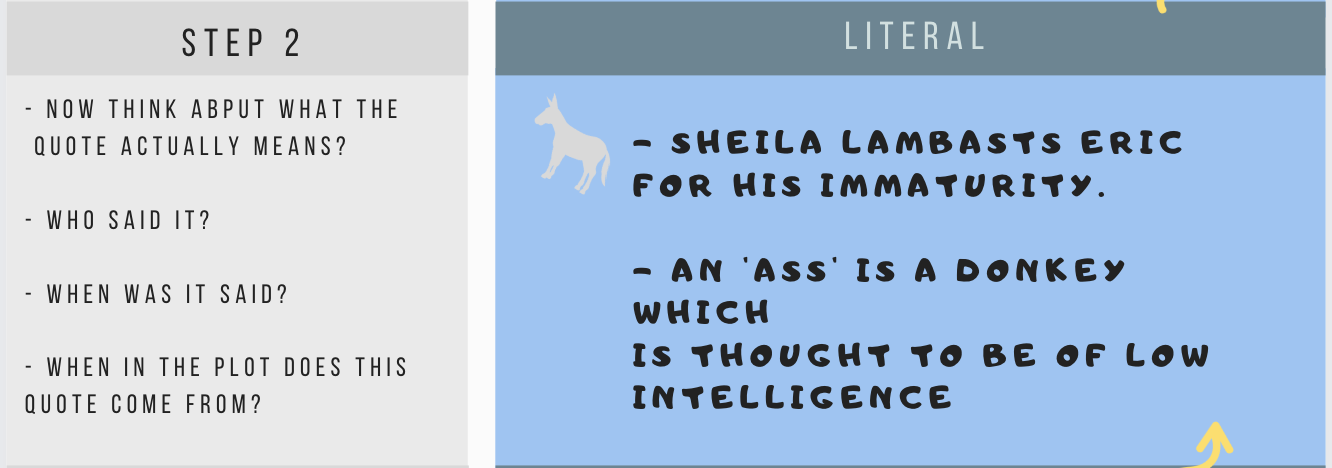Inference is a big part of English Literature. You may hear your teacher talking about it. You will certainly see reference to it in revision guides and in mark schemes. But what is it? And why do we need it?
What is Inference?
Let’s start with the definition:

So basically:
Inference = Evidence + logic
or in other words inference is when you use quotes as basis to make insightful points.
Here is an example. Imagine there is a cookie missing. You notice crumbs on your siblings face. What inference can you make?
a. the cookie ran away
b. your sibling ate the cookie
c. your best friend ate the cookie
Well, clearly the answer is b. after all the EVIDENCE supports your conclusion. Poor inference is when you make a conclusion without any evidence. For example if you assume the answer is c. even though there is no EVIDENCE to support your argument.
To help you achieve high level inference, you need to analyse the evidence in detail. This way, the inference you make will be even more insightful.
Here is a step by step walkthrough:
Step 1:

First, start by picking a quote. For this example, here is a quote from an Inspector calls.
Step 2:
Now we need to start by explaining the obvious meaning, or literal understanding, of the quote. This is just basically who said it, what are they saying, and why did they say it?
Step 3:
Finally, use the previous step as a launchpad into an abstract theme or idea. For instance, in this example, we use the word ‘ass’, which has connotations of idiocy as a launchpad into the theme of ignorance and the relate this to the rich as we know J.B Priestley thought unchecked capitalism lacked sympathy and awareness of the less fortunate.
Now you try. Download the ‘Inference ladder’ template below and give it a go! Just be sure to follow the steps and remember to end with an abstract theme or idea.


